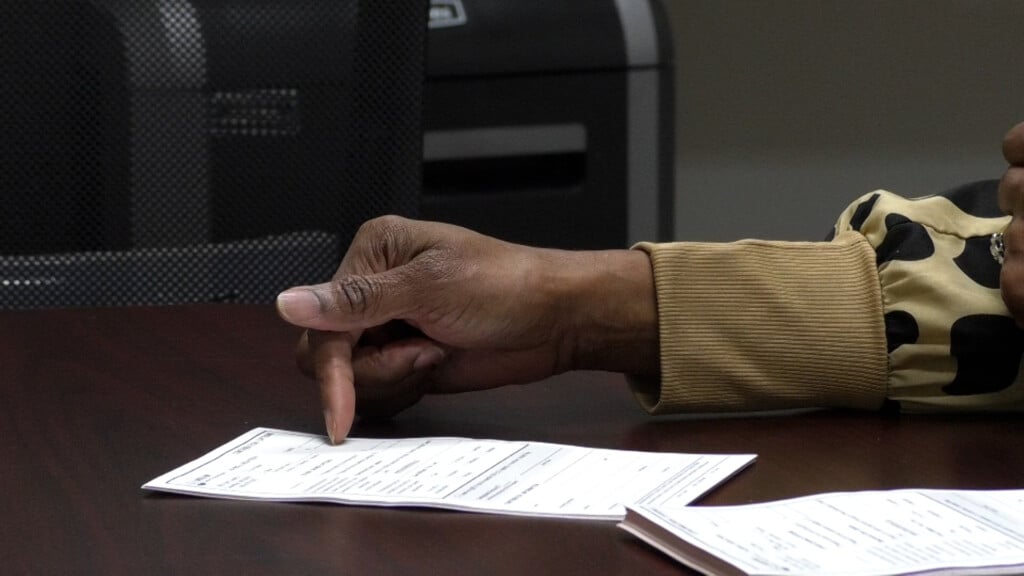MSU Student’s Research Earns Recognition

Sourav Patnaik uses the biaxial machine in the Agricultural and Bioengineering lab to stretch sheep tissue and determine its viability. He recently won the prestigious Southeastern Microscopy Society Ruska Award in recognition of his research. Photo by: Beth Wynn
STARKVILLE, Miss.–Groundbreaking research by a Mississippi State University student has garnered prestigious recognition from the Southeastern Microscopy Society.
For biomedical engineering doctoral candidate Sourav Patnaik, winning the 2013 Ruska Award is additional confirmation to move forward with his work examining a reproductive disorder affecting hundreds of thousands of women around the world.
Patnaik’s presentation during the association’s annual meeting in May, “Structural and Ultrastructure Analysis of Decellularized Sheep Vaginal Tissues,” reflects months of work on engineering microscopic sheep tissue to treat Mayer-Rokitansky-Küster-Hauser (MRKH) syndrome in sheep.
In humans, the condition impacts about one in 5,000 women, whose pelvic organ development is incomplete.
“The organs develop differently, so females have all these problems: pain, they cannot conceive and they don’t have proper hormone development, so that leads to secondary problems,” Patnaik explained.
The most common surgical treatment is the McIndoe vaginoplasty, where a skin or muscle graft from the patient’s leg is used to create a tissue engineered vaginal patch (TEVP), he said.
Alternatively, Patnaik proposed using select components from the reproductive tissue of female sheep, the most similar to human tissue, and make it suitable for human use. His study used decellularized vaginal sheep tissue to create a graft. The approach is unique in that Patnaik’s approach is to harvest and repurpose the extracellular matrix to create a scaffold, or frame, to support tissue regeneration from human cells.
The engineered tissue underwent a variety of tests to determine whether it can live. The preliminary results, which Patnaik presented at the conference, suggest that the bioengineered vaginal tissue can work as a treatment. However, further research must be conducted to determine the biocompatibility and cell-support capability of these grafts.
Patnaik said this project will lead researchers to quantify the mechanical property of the pelvic floor tissues.
After further animal treatments, it could be introduced for human study, he added.
The work was made possible by Mississippi Agricultural and Forestry Experiment Station Strategic Research Initiative (MAFES-SRI).
Patnaik credited his research team as another critical component of the study’s success.
It included Amanda Lawrence, outreach coordinator for the Institute for Imaging and Analytical Technologies; David Christiansen, assistant professor in pathobiology and population medicine for MSU’s College of Veterinary Medicine; Peter Ryan, associate provost for academic affairs; and Jun Liao, associate professor of agricultural and biological engineering.
Fellow doctoral candidates Bryn Brazile, of Baldwyn, and Benjamin Weed, of Huntsville, Ala., also played important roles in the study, Patnaik said.
“After two painstaking months, we got something presentable together. If they don’t find a candidate, they don’t give the award,” Patnaik said. “I’m the sixth person from Mississipppi State to have received the award from Mississippi State.”
Patnaik expects to complete his doctoral degree in 2014.




Leave a Reply